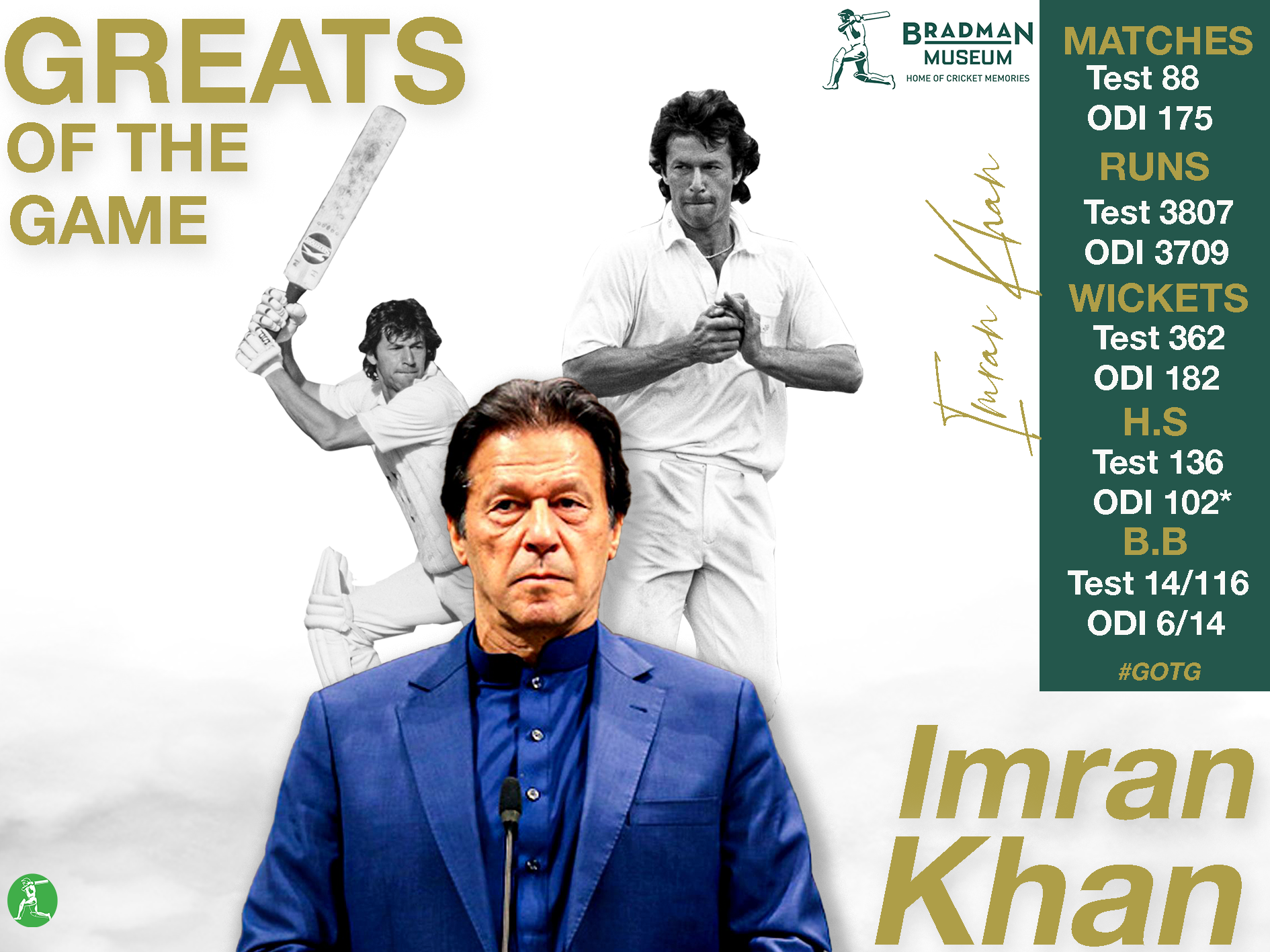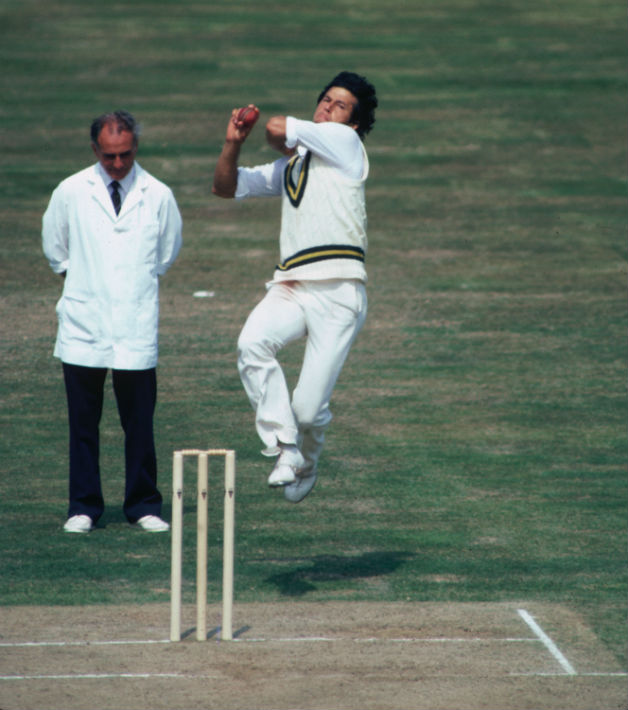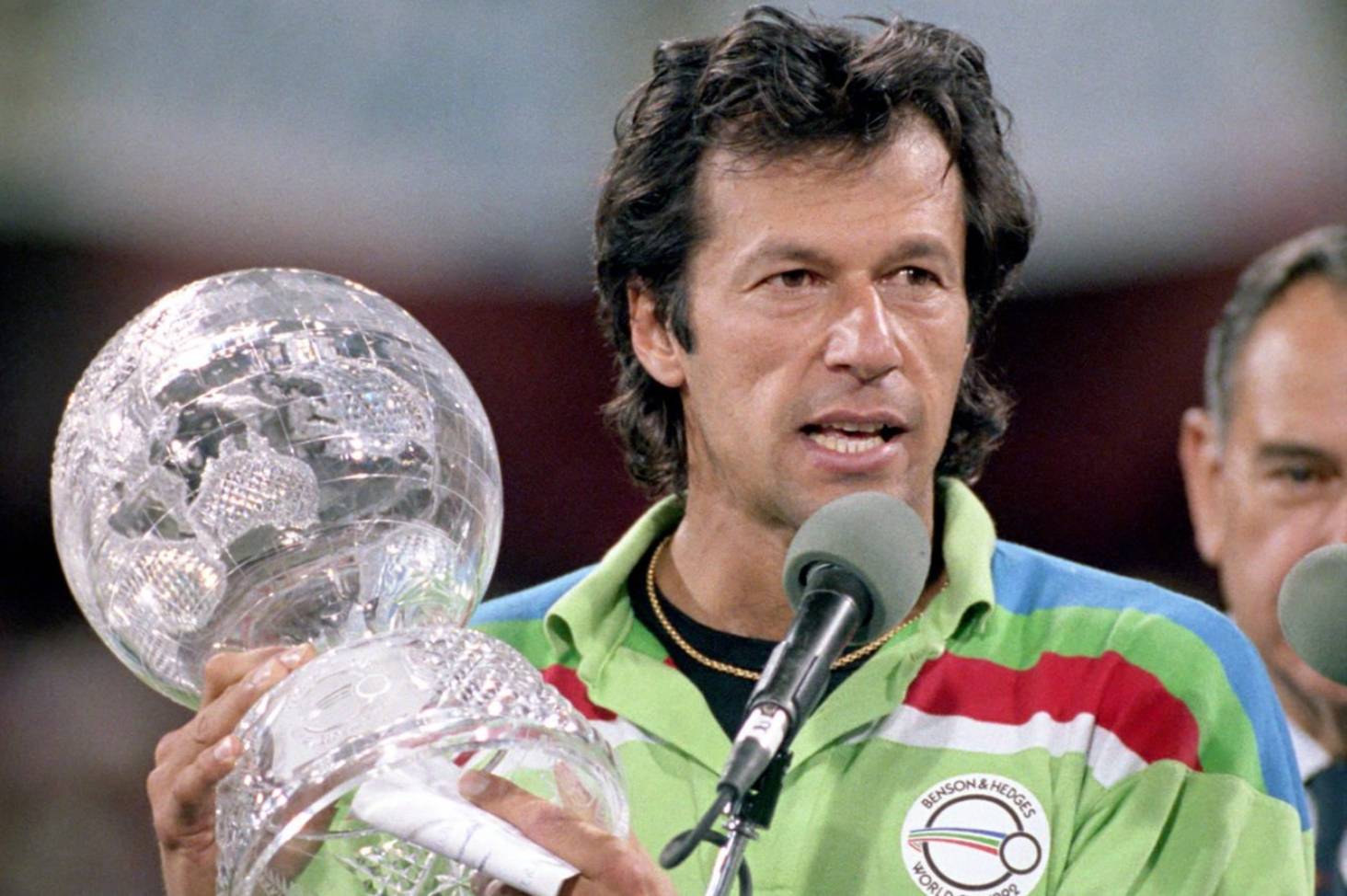Pakistan
All-Rounder
D.O.B: 05/10/1952
International Career: 1971 – 1992
“Imran Khan was a great cricketer. I mean in every facet of the game.” – Michael Holding

One of the game's finest all-rounders
When Imran Khan entered office as Prime Minister of Pakistan in August 2018, he took the final step in a truly all-round career. One of the most skilled and charismatic cricketers of all time, he has, post-retirement, fervently pursued a vision for the country that he represented with great distinction for more than twenty years.
Born into an affluent family where he had the privilege to devote time to improving his cricket, a young Imran Khan was additionally surrounded by inspiration; his cousins – Majid Khan and Javed Burki – both captained Pakistan. So, naturally gifted and imbued with a desire to succeed, it wasn’t long before the precociously talented all-rounder made his First-Class debut as a sixteen-year-old in Lahore.
Continuing a rapid rise, Khan was selected to make his Test debut two years later in 1971 in England. An inconspicuous first foray, he had to wait more than three years for his second Test cap, returning to the First-Class scene in the UK to increase his bona fides. During this time, the young Pakistani dominated for Oxford and Worcestershire – twin centuries in one match against Nottinghamshire a particular highlight. Though he was full of potential, Khan’s enterprising style was often hamstrung – at this early stage – by a cavalier recklessness, especially with bat in hand. That said, upon return to the national side in 1974, he was determined to help a hitherto underperforming Pakistan to greatness.

Khan came to have one of the most iconic bowling actions
Still finding his feet, Khan credits his World Series Cricket experience in the late 1970’s as critical to his development, suggesting he didn’t have his bowling style totally worked out until 1980; ultimately carving out his iconic, effortless run-up, Khan bent forward at the waist, before leaping at the crease, terrorising those twenty-two yards away.
Utterly dominant thereafter, he led Pakistan Down Under in 1981/82 with 16 wickets in a three-match series, before assuming the captaincy and taking 21 from three Tests against England in 1982. A stellar year, Khan claimed 62 wickets at 13.29 throughout 1982 – his devastating late swing and fearsome bouncer on display for all to see.
It was the captaincy, too that really allowed Khan to flourish. As a batsman, the added responsibility fine-tuned his mind at the crease. Wisden even suggests he became unrecognisable, declaring that in the latter part of his career, “the maturity with which he chose his strokes was astonishing.” Martin Williamson also contends that Khan thrived as captain, “he just kept getting better and better,” he said. The statistics support this argument, too, in his final ten years, Khan played 51 Tests, averaging 50 with the bat and 19 with the ball.

He led Pakistan to their maiden World Cup in 1992
Beyond his own exploits with bat and ball, it was his leadership style that united and inspired a country. Perhaps partly a product of his suave and stylish nature, but Khan was able to unite disparate factions together, showing the people of Pakistan that they could be a great cricketing nation. Indeed, former president of the MCC, Kumar Sangakkara suggests that there remains great admiration for him, “the Pakistani players are still in absolute awe,” he said. “He could do incredible things on his own, but more importantly as captain, he could motivate and inspire others to do great things.”
Leading Pakistan through a particularly strong era – including their maiden World Cup victory – after which he made public his dream of one day building a hospital for cancer patients, a hospital that now operates in Lahore – Khan is universally admired. His great friend and teammate, Wasim Akram even believes that “where (he is) in life – as a bowler, a cricketer, a commentator and a human being – is because of him.”
Following his international retirement in 1992, Khan decided to enter the labyrinthine world of politics. A natural leader, he became an outspoken critic of government corruption, ultimately founding his own centrist party; Pakistan Tehreek-e-Insaf. Gradually building support for his populist ideas, Khan was elected to the Prime-Ministership in 2018.
A genuine all-rounder with a unique ability to understand and inspire others, Imran Khan has given his native Pakistan a newfound discipline and direction, both on and off the cricket field.
Join the cricket network to promote your business and expertise. Make it easy for people to search and find the people and services they need through people they know and trust.
Join the network







